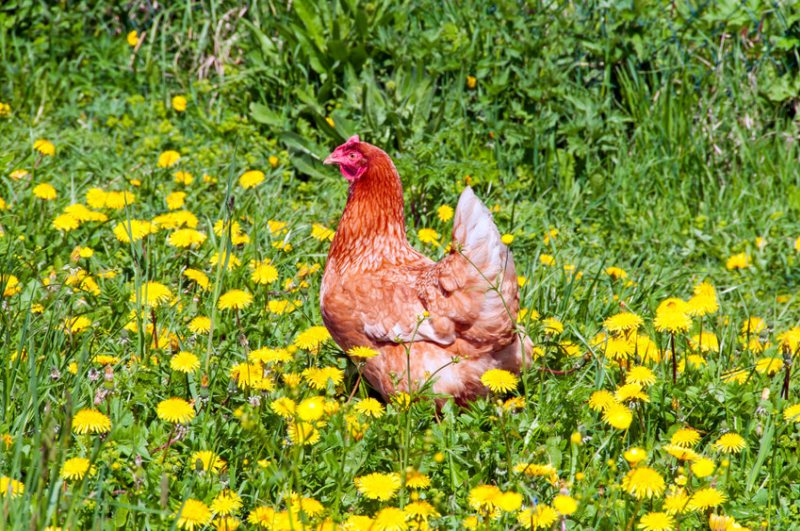
The Leckford Estate in Hampshire has been unveiled as a testbed for future agricultural innovation, helping the supermarket bring its net zero ambitions forward to 2035.
Last year Waitrose announced that the entirety of their UK farm-supplier base would reach net zero by 2035, five years earlier than the NFU aim for the wider agricultural sector to reach that goal.
This means that the supermarket have scaled up their efforts to support farmers in offsetting carbon emissions.
Executive Director of Waitrose, James Bailey, wrote earlier this month: “Over the next 15 years we will use the full weight of our resources to facilitate radical research and practical application to identify the best techniques to farm in a way that is kinder to the environment.
“Whether it’s planting trees to promote biodiversity, or reducing water usage to protect resources, our focus will be on using biology rather than chemistry.
“Leckford will be an experiment in farming best practice, one that we hope will pave the way to genuine solutions to help conserve our soil, air, and water for future generations and help us deliver our 2035 commitment.”
Egg production is an important component in the supermarket’s drive towards net zero, including their primary supplier Stonegate, sitting on the Waitrose Livestock Steering Group that informs their agricultural policy.
The group recently discussed plans to increase the cover of trees on the range by 20% in 2022 as well as re-seeding the areas of wild flower mix that producers first sowed in 2019.
Aside from work on the range, discussion on topics such as efficiency of production, breed selection and housing design are led by producers.
Innovation is also an important part of the dialogue and recently led to the introduction of the green Longstock Gold Egg, whilst industry concerns beyond sustainability are often discussed.
These include worker welfare, the changing threat of avian influenza, and environmental concerns in the public eye, notably the recent issues in the River Wye catchment.
Waitrose said: “Everything we do is in collaboration with Stonegate and we are regularly meeting with farms for discussions about both our trial and innovation work as well as wider challenges within the industry.”
The supermarket are keen to stress that collaboration is at the heart of the sustainability project.
Mr Bailey explained: “There is little value in doing this work alone which is why we intend to share all our findings with our farmers, suppliers and anyone who is interested across the agriculture and retail industries.”
He went on to say that the relationship between Waitrose and their producers is pivotal: “It is critical that we bring our farmers on the journey with us.
"Fortunately having worked closely with the majority of them for decades, we know that they share our high standards in terms if quality, welfare, and provenance.
“We hope that by leading this work we can define what the future of UK farming should look like, and in its discovery, use what we’ve learned to create a balance in our food system that will help reduce the impact that food production has on our planet.”
The announcement of the commitments was welcomed by Defra Secretary George Eustice: “It is good to see Waitrose commit to innovative farming practices which will contribute to their net zero ambitions.”
“Last year, the government set out how we will transform the way we support and incentivise farmers to farm more sustainably, create space for nature and enhance animal welfare.
"These incentives will provide a powerful vehicle for achieving the goals of our commitment to reach net zero emissions by 2050.”
Whilst net zero is a major goal for farmers, it does provide yet another cost for producers to deal with at a time when they are already seeing significant price rises.
This is likely to hit organic producers the hardest with organic feed costs having gone up even more than those for normal free range.
The last time organic production hit these problems, alongside the recession of 2008, the industry was decimated and took 10 years to recover.
The supermarket said: “Farmers producing both free range and organic eggs for Waitrose receive prices adjusted monthly to take account of feed price change.
“Alongside Stonegate we keep a keen eye on the outlook for feed raw material volatility, and as one of the very first supermarkets to put ‘feed-linked’ price structures in the contracts within our supply base, we have a strong track record of standing shoulder to shoulder with their primary producers”.
Whilst the work Waitrose are undertaking at the Leckford Estate is not specifically tailored towards egg production, many of the research projects are likely to have an impact on the way free range producers work in the future.
Most significant is the ongoing work to harness sustainable energy. The estate has already kickstarted a number of sustainable energy projects to replace fossil fuels.
For example, in addition to gradually switching to electric vehicles, they will trial the use of biomethane to run farm vehicles and Hydrogenated Vegetable Oil (HVO) to run food processing and farming activities.
There is also work underway at Leckford to make the most of by-products on the farm, a barrier that the whole of agriculture will need to work to overcome in the near future.
Specifically, the estate has a milk processing unit which generates waste during the production process, rather than throw this away, it is captured and sent to an external company for use as a natural energy source.
Similarly, pellets generated from the company’s on-site rapeseed processing unit are used as animal feed.
